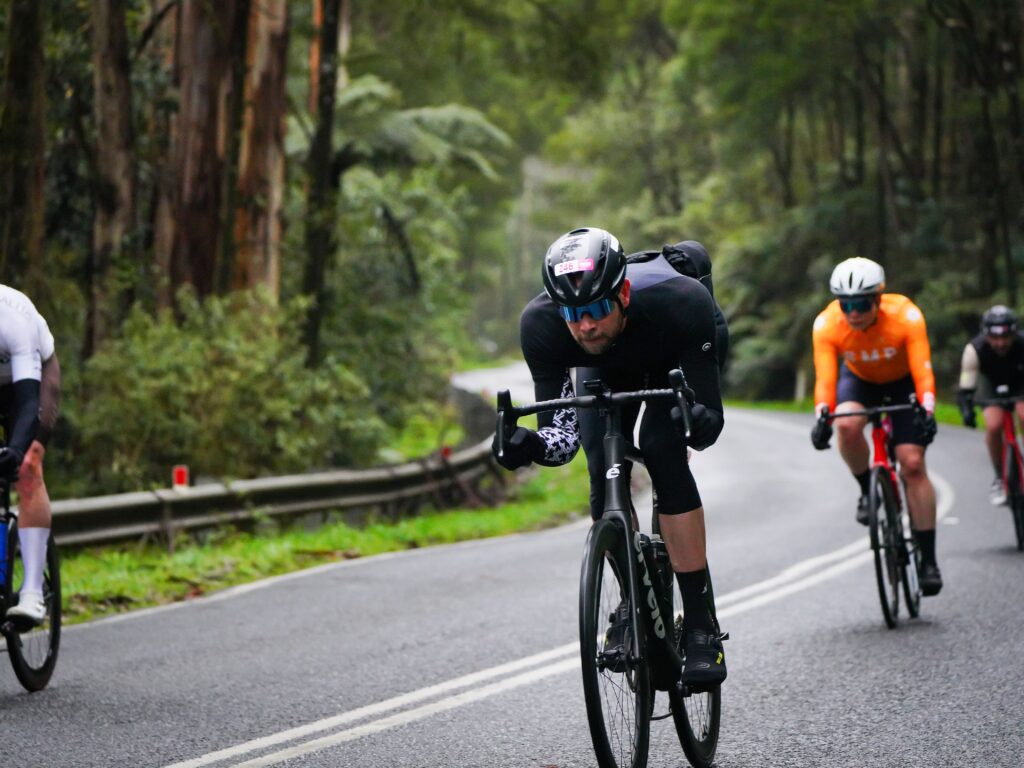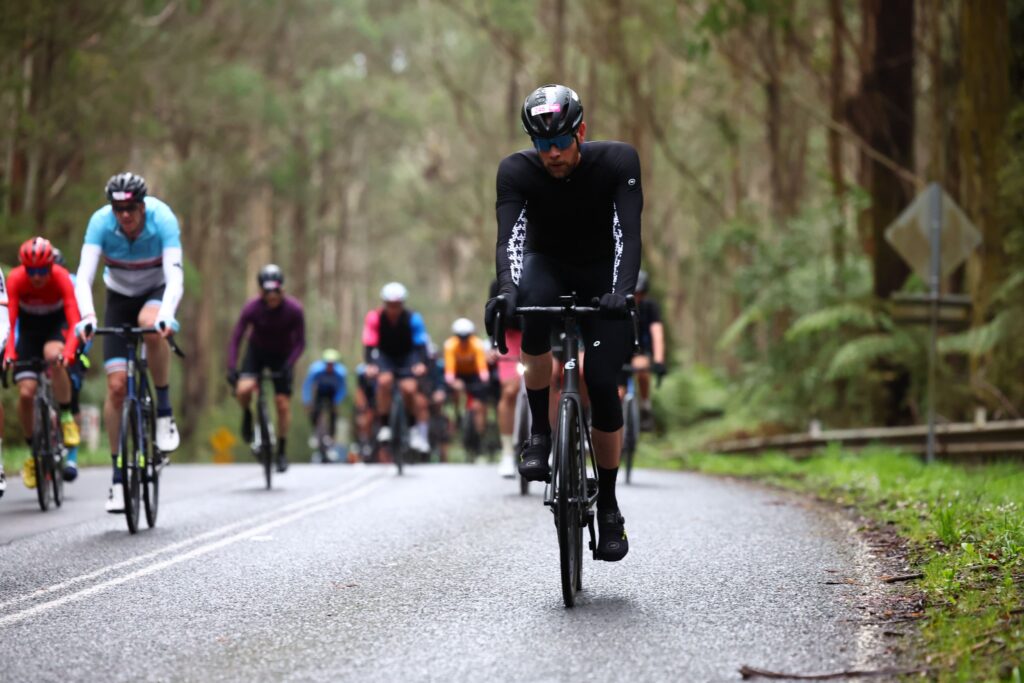
I often get asked the question, ‘What threshold do you think I can achieve?’. I always have a similar response… I can’t give you an exact answer because there are so many variables, especially for those with a full time job.
But more recently, I can confidently say that with a commitment to staying CONSISTENT and a focus on QUALITY training, you can get as far as you want (within reason).
I have been working with one RCA member, let’s call them, John, for just over a year. John is 18 months into his cycling journey, and basically started from zero. In fact, his first FTP test was performed on the second day on his road bike.
“The intent was to highlight the same: an untrained individual starting out (the first FTP test was literally day 2 on my road bike, not having done any sort of intense cardio since high school) and what consistency and SMART training can do in just 18 months.”
John began with limited knowledge but an eagerness to learn and a commitment to doing everything right. Training. Recovery. Absorbing knowledge from content and coaches whilst trusting in the process. His transformation has been the biggest I have seen to date as a cycling coach, and I can put it down to 3 things:
- Consistency
- Quality
- Coaching relationship
1. Consistency
John trained consistently with only scheduled time off the bike during the 18 months of training. He rarely gets sick and gets stuck into the work without interruption or excuses. This includes some massive 6hr rides on the indoor trainer!! He’s also a big proponent of rest and recovery strategies, and is conscious of sleep and rest when he needs it!
“Recovery is training too, embrace it. Create the space to press the save button. Think about the long game and long term health benefits. Think about the importance of sleep (which really underpins everything recovery-wise). You need to allow time for adaptations to occur. A coach helps to spot these areas for improvement. A 100m Olympic sprinter is NOT doing all-out sprints every day. Pogi ISN’T riding at 7W/kg every day of the week. Neither should you.”
There are many training tools out there that help you get that extra 1% out of your training, but how do you make the most of the other 99%? In my opinion, it is consistency with your training that has the biggest impact on your fitness.
Consider a whole year worth of training. 365 days. Let’s say you take an average of 2 rest days per week. That is 261 days of training per year. Those other 104 days are training as well, by the way, just in another way. i.e., active recovery, massage, stretching, sleeping etc.
Let’s say you regularly miss 3 days in a week of training every other week or only train 3 days a week. You’re down to ~150 days of training per year.
Who do you think is going to see the most progression…
2. Quality

Training doesn’t need to always be the hardest or the longest you can go. Instead, you just need to trust in the process and stick to your scheduled training, ensuring it’s good quality.
The power prescribed for each session is tailored to you and to a specific energy system/ goal, so although you might be able to go harder or longer, it’s not exactly advantageous — you’re missing the point. For example, let’s say you have a set of steady state sub threshold efforts but you push above your threshold at points because you want to push yourself…
What have you actually done? Well, you have used more energy, you’re not in a physiological steady state and you’re producing more lactate (as one by-product example) and causing more fatigue that accumulates easily causing a flow on affect to the following day/s and week/s! You may not feel it at the time, but do that too many times, you may get sick a couple of weeks later because your body has been slightly too fatigued and can’t fight off that sickness that you may have been able to if your immune system wasn’t slightly compromised.
You then miss a week of training because you’re sick, lose fitness and start the cycle again. So, focus on your quality of training and think about the big picture — you need to trust in your training.
3. Coaching relationship
The above 2 points to me ultimately come down to trust and connection with your coach. Do you trust what your coach prescribes for you? Do you speak or message on a regular basis to understand what is happening with your training? Do you provide feedback so sessions can be tailored to you?
John is a very diligent ‘student’, provides feedback and when we catch up for our monthly calls, we go back and forth on how that block went, e.g., What worked? What didn’t work?
We actually had one block where the interval sessions were too hard every week when they should not have been. He was failing sessions and we didn’t get far which is the one time where his threshold plateaued in the photo below. We learnt more from this block than we did in the 6 months prior to that! We learnt the right balance for him. Without going into too much detail, John doesn’t respond well to high intensity training more than once a week. This is common but this case was really exaggerated and not like I had seen before. We adjusted and set out a plan for the next block and saw a ~20w lift in threshold at the end of that block.
“Be a life-long learner. Every day is day 1. You don’t know what you don’t know. Learn from your coach, ask questions, do research, experiment with things, see what works. Find trusted sources of information. All of this is in your control and up to you.”
Our takeaway from this block was to learn from our mistakes, communicate and work together to find what works best for each individual. We now stick to what has proven to work for him the majority of the time whilst adding those challenging workouts into his schedule occasionally to not plateau.

Do you want to stay consistent on the bike and make steady progress? If so, the RCA Uplevel Road Cycling Course is for you. We onboard you with likeminded cyclists to help you achieve your cycling goals.
Takeaways:
- Stay consistent with your training- get 4-5 workouts done a week for a long period of time
- Focus on the quality of training for each session- stick to the targets and push yourself every now and then
- Talk to your coach and find out what works for you and work together to make a plan

